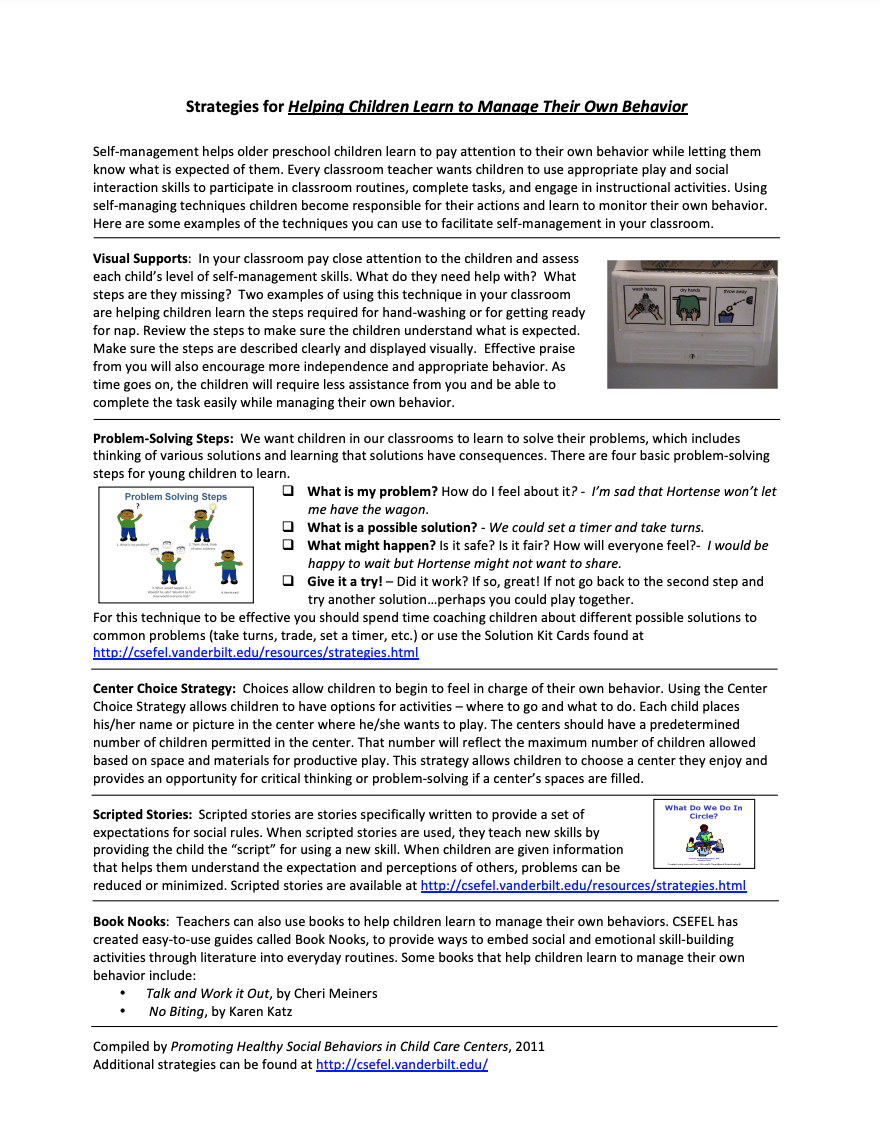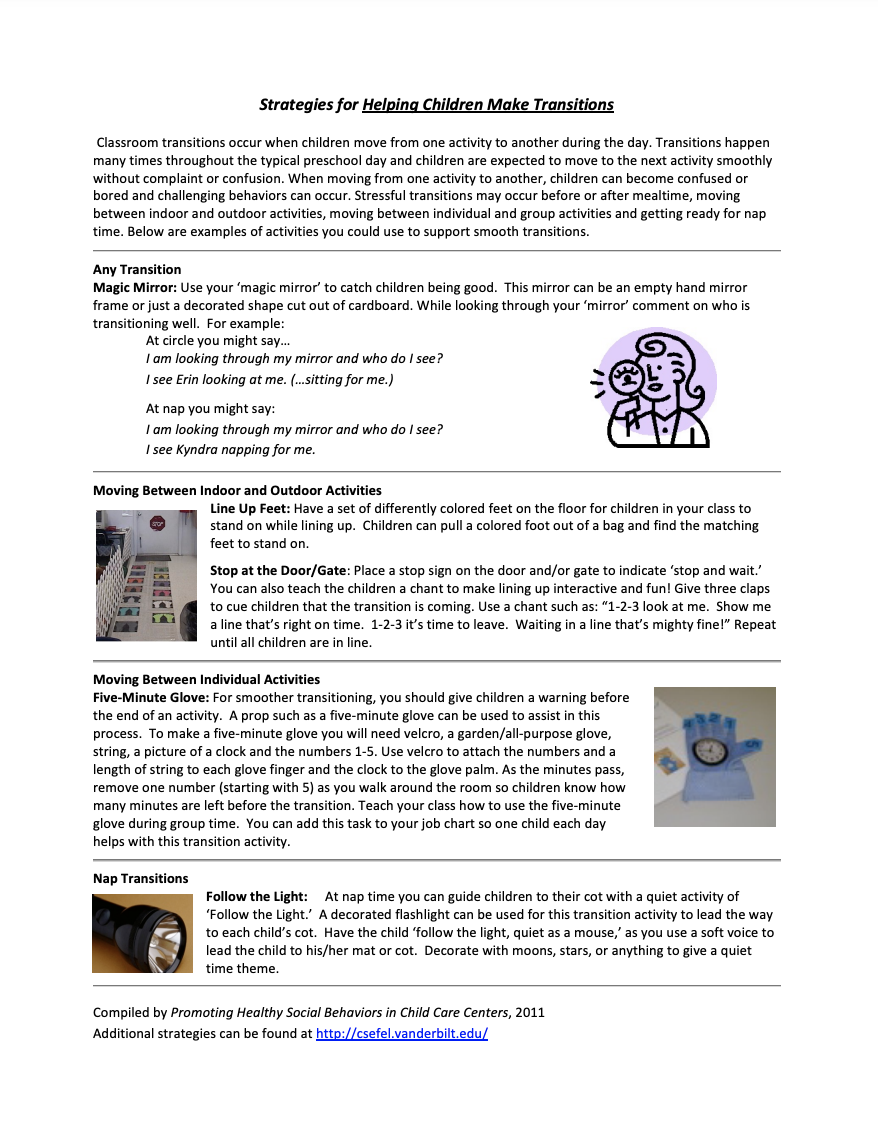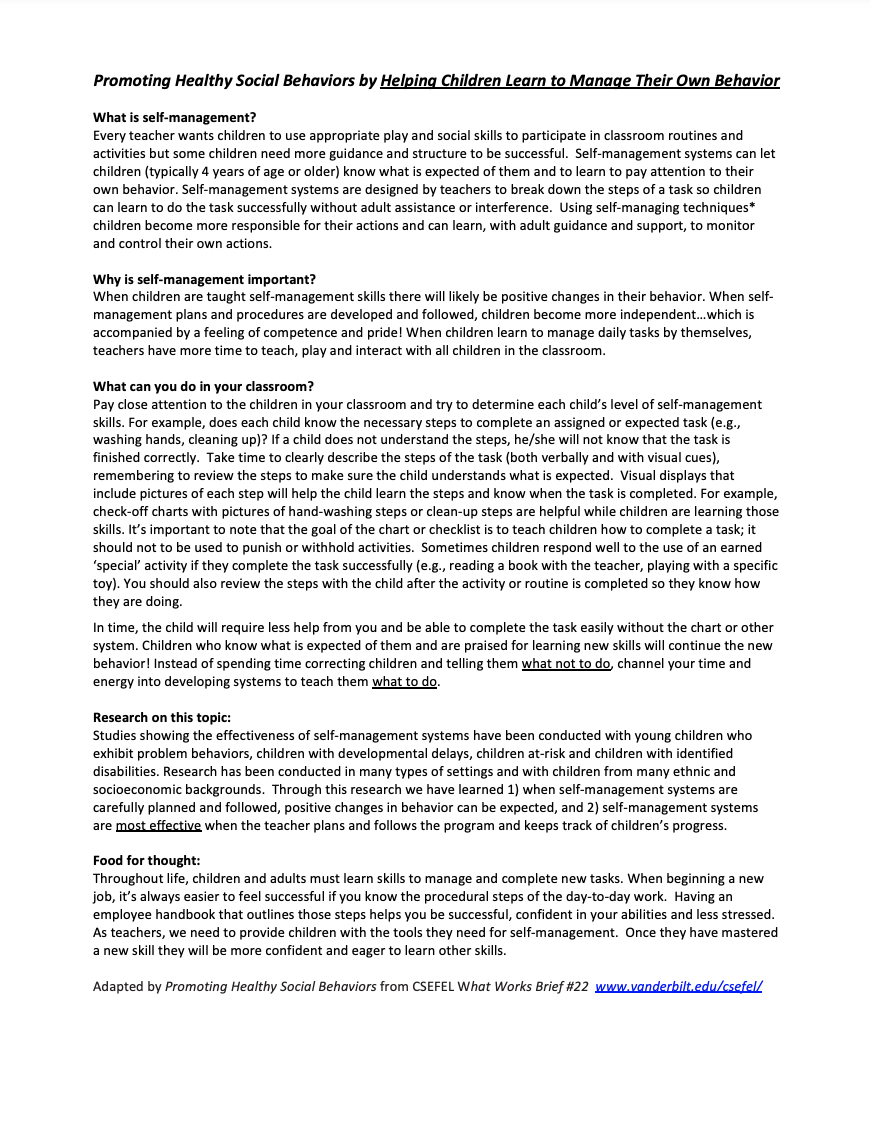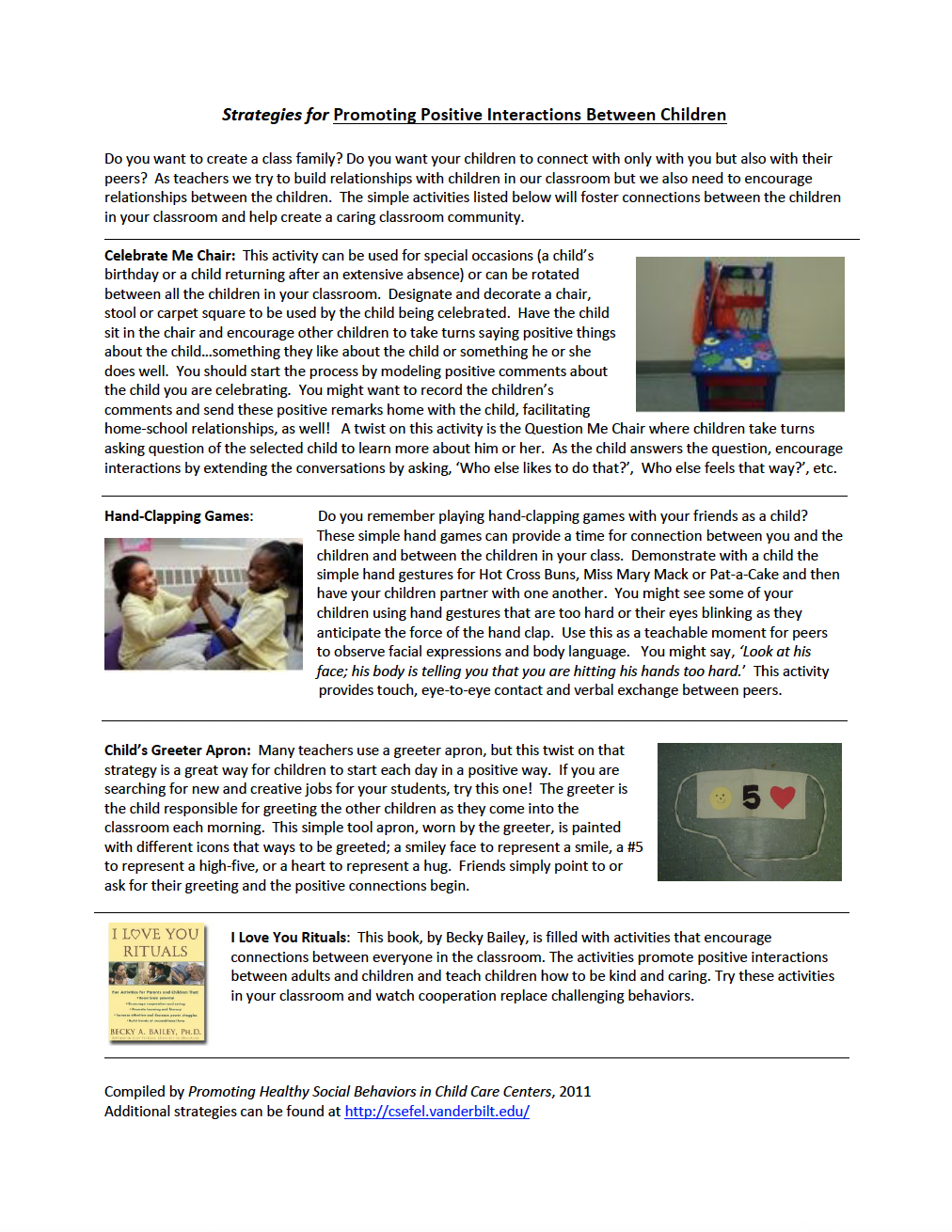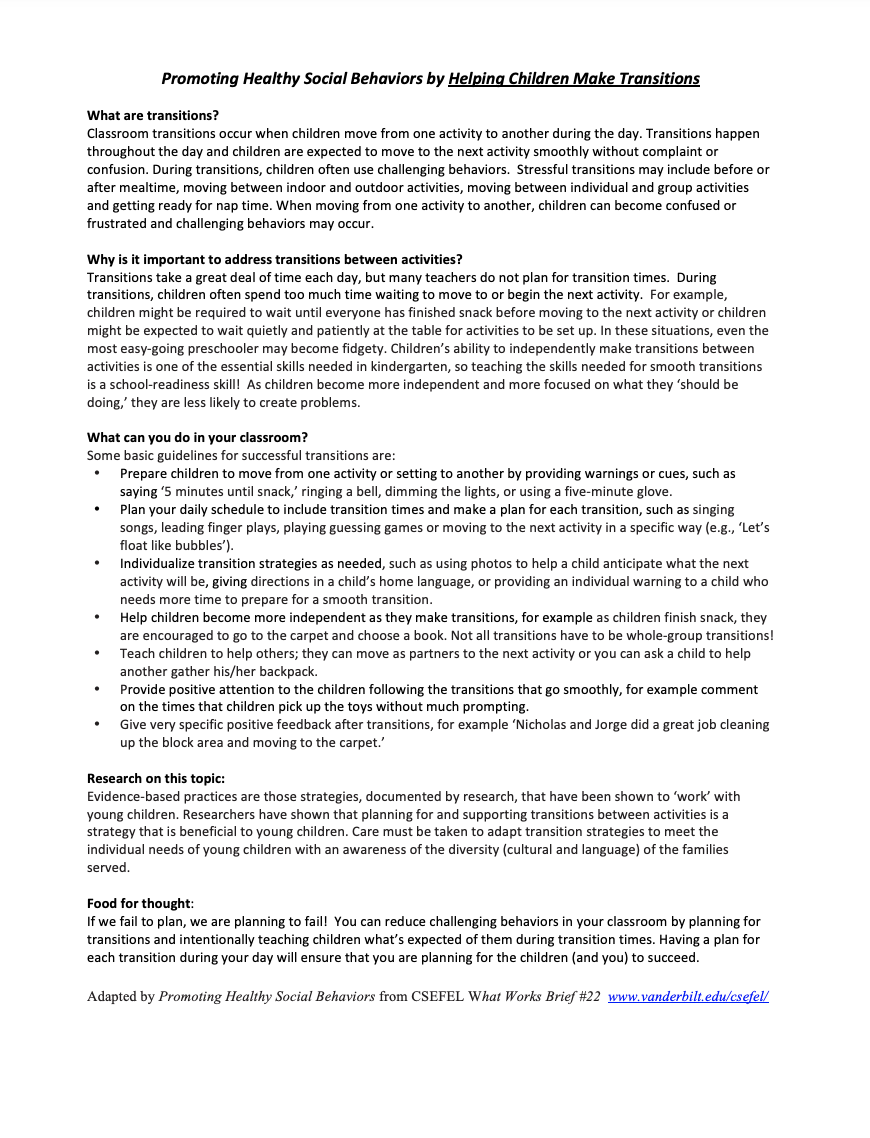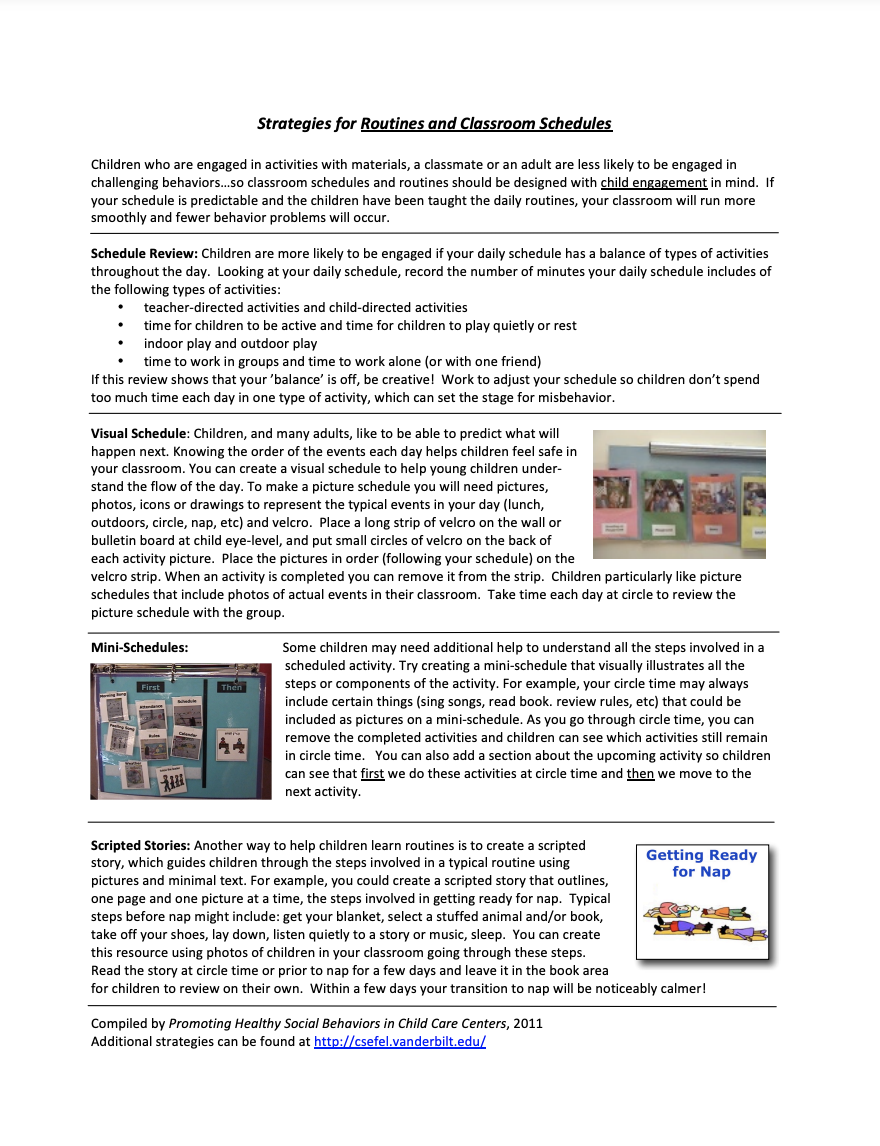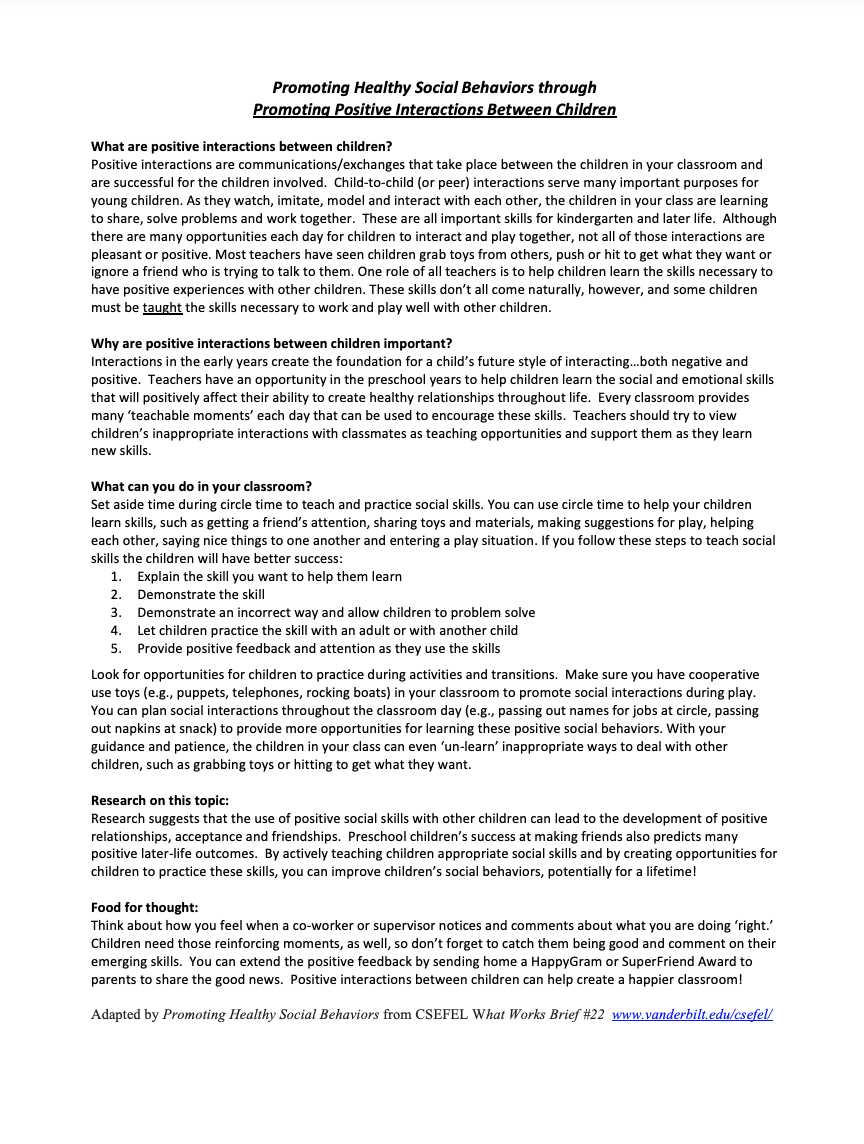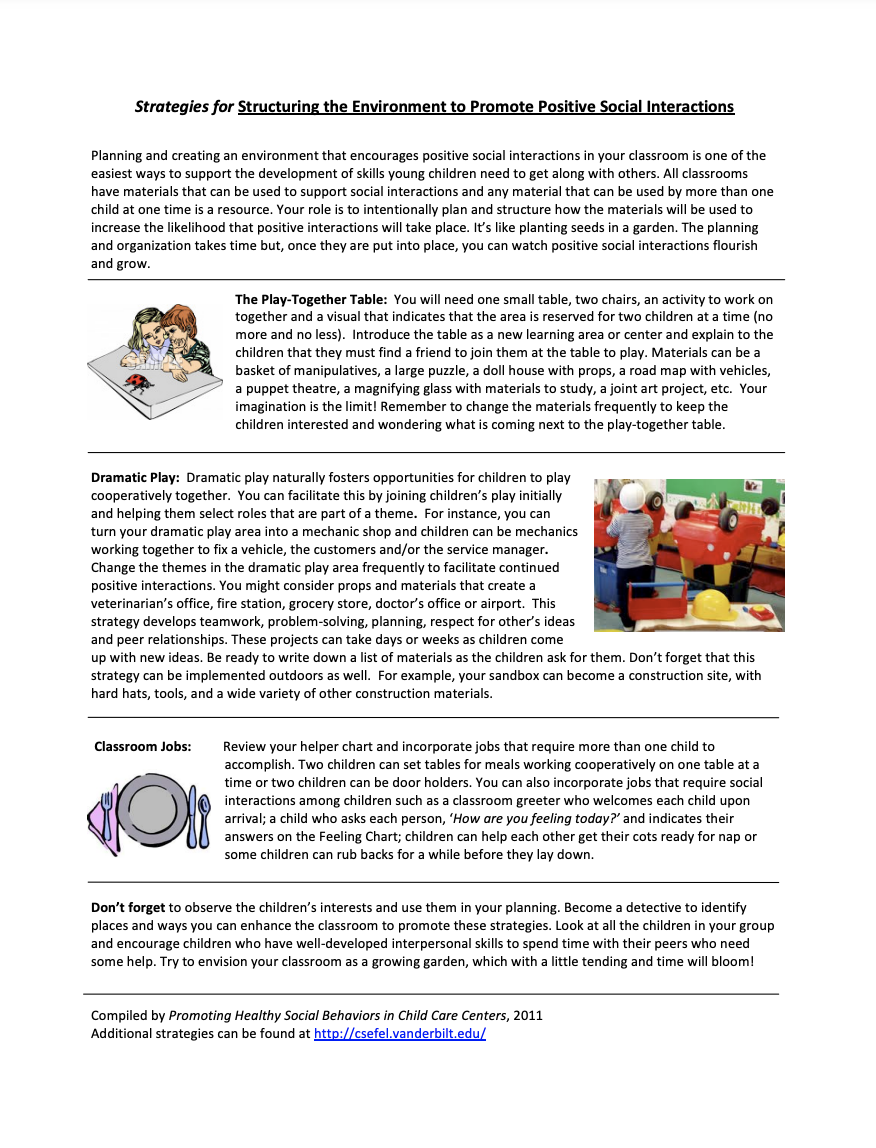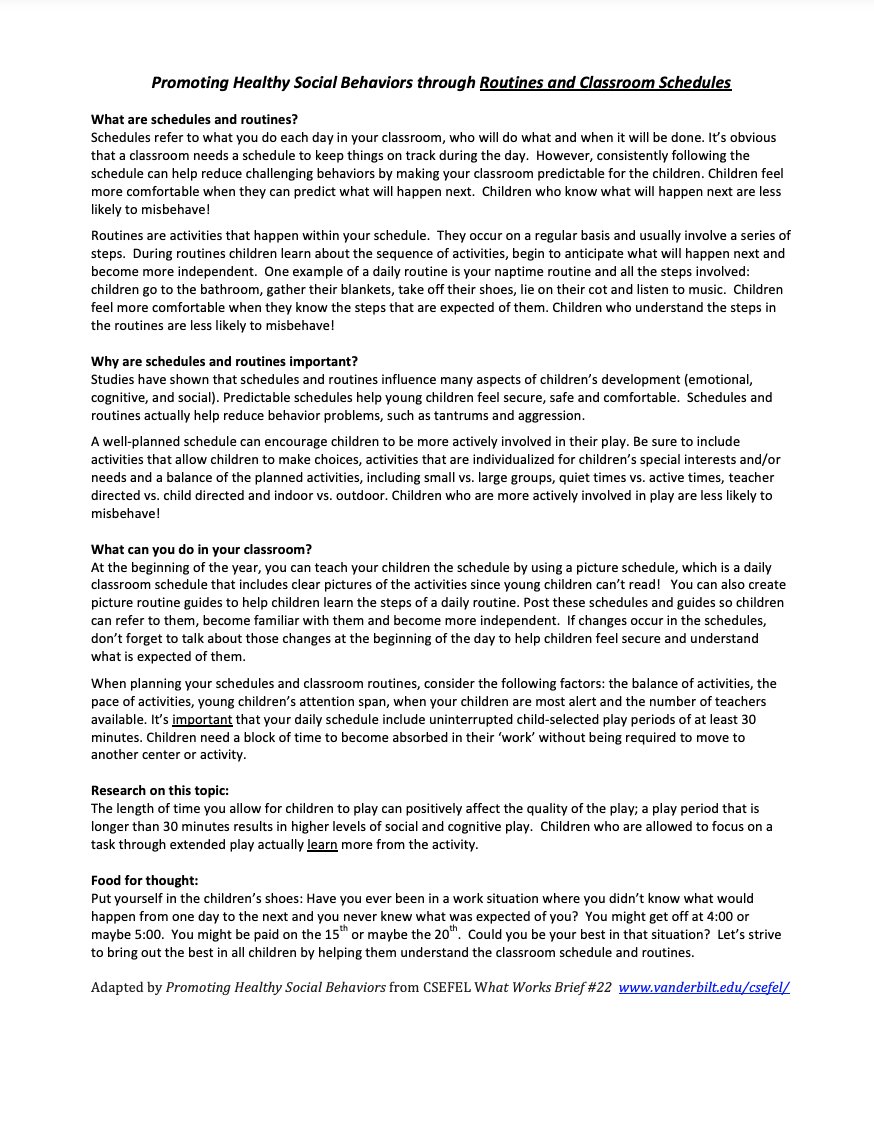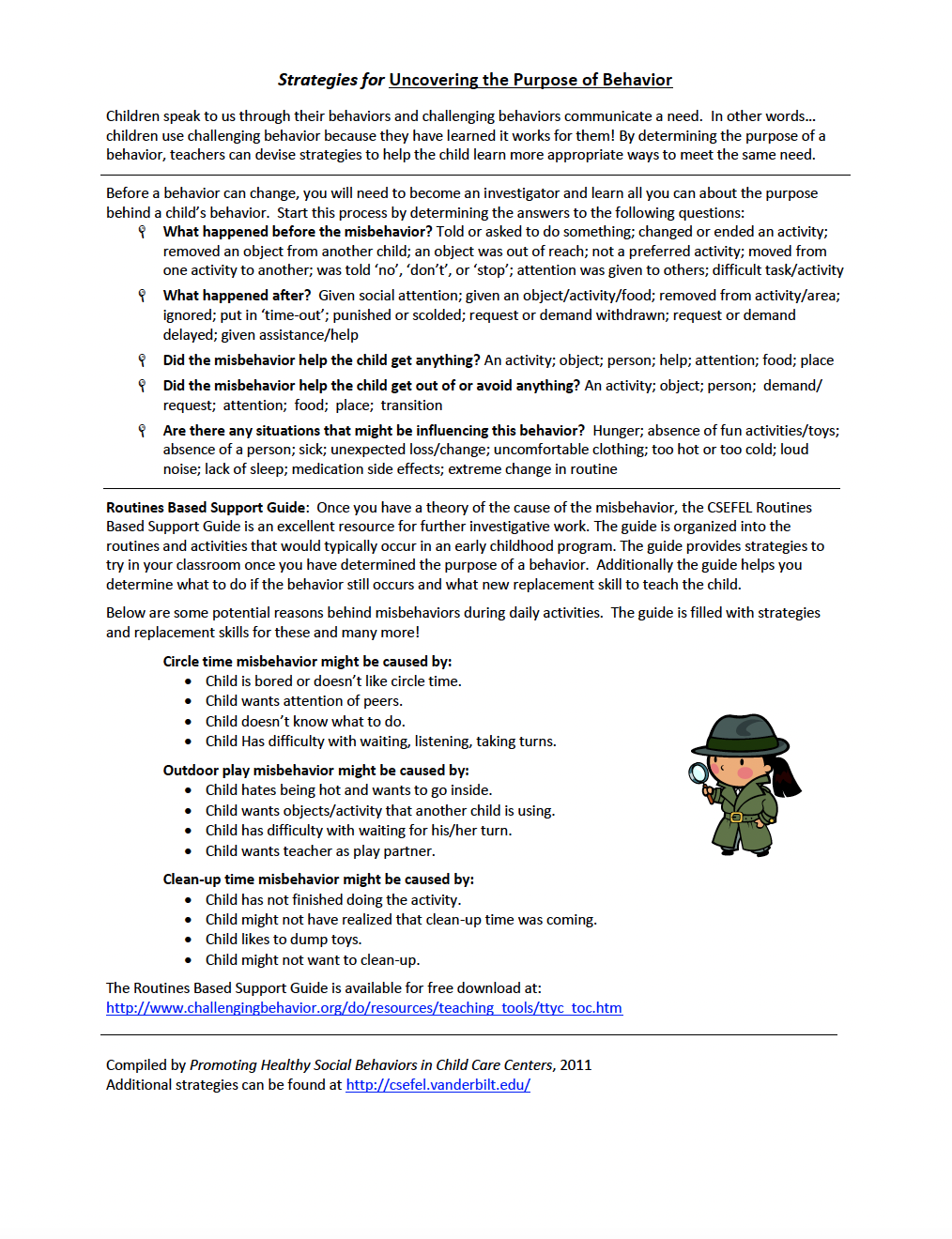By using self managing techniques, children become responsible for their actions and learn to monitor their own behavior. This report provides examples of techniques you can use to facilitate self management in your classroom.
Topic: Social-Emotional
Strategies for Helping Children Make Transitions
This report contains ideas for activities that you can use to support smooth transitions for children throughout the day.
Helping Children Learn to Manage Their Own Behavior
Learn more about self-management for children and why it’s important in this report.
Strategies for Promoting Positive Interactions Between Children
Do you want to create a class family? Do you want your children to connect with only with you but also with their peers? As teachers we try to build relationships with children in our classroom but we also need to encourage relationships between the children. The simple activities listed in this report will foster… Continue reading Strategies for Promoting Positive Interactions Between Children
Helping Children Make Transitions
What are transitions, why is it important to address transitions between activities and what can you do in your classroom? Find out in this report.
Strategies for Routines and Classroom Schedules
Children who are engaged in activities with materials, a classmate or an adult are less likely to be engaged in challenging behaviors…so classroom schedules and routines should be designed with child engagement in mind. If your schedule is predictable and the children have been taught the daily routines, your classroom will run more smoothly and… Continue reading Strategies for Routines and Classroom Schedules
Promoting Positive Interactions Between Children
Find out more about positive interactions between children, why they are important and much more in this report.
Strategies for Structuring the Environment to Promote Positive Social Interactions
Learn some quick and easy strategies for planning and creating an environment that encourages positive social interactions in your classroom.
Routines and Classroom Schedules
Find out more about routines and classroom schedules and why they are important in this report.
Strategies for Uncovering the Purpose of Behavior
Children speak to us through their behaviors and challenging behaviors communicate a need. In other words… children use challenging behavior because they have learned it works for them! By determining the purpose of a behavior, teachers can devise strategies to help the child learn more appropriate ways to meet the same need.
